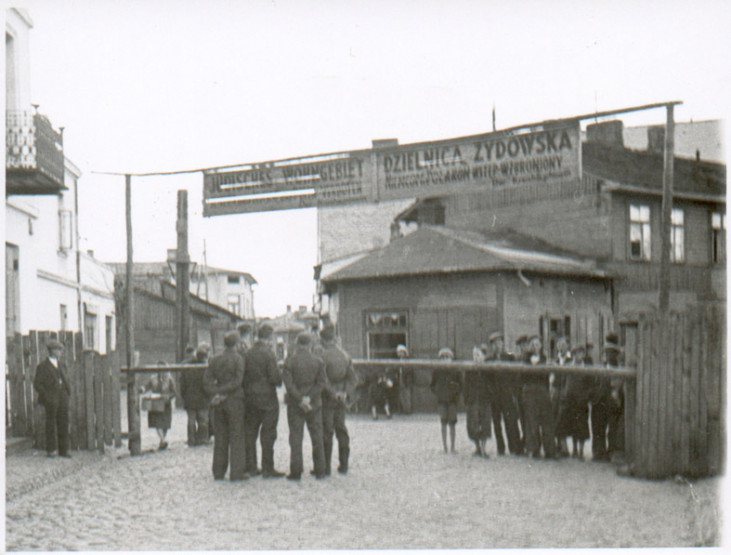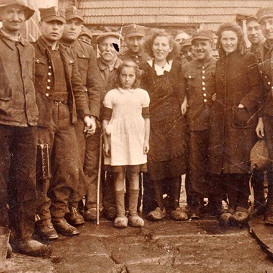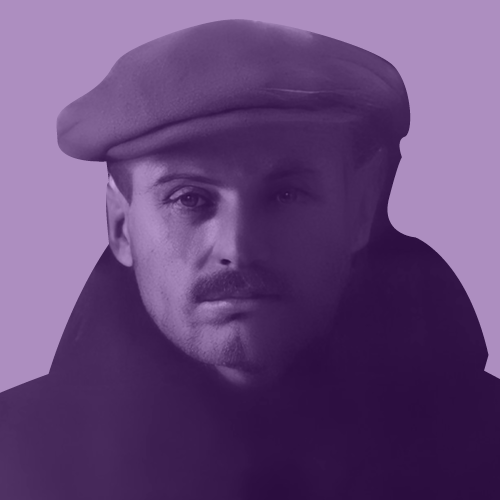Władysława Nagórka z d. Lech (1895—1981) - Instytut Pileckiego
Władysława Nagórka z d. Lech (1895—1981)
Awarded in 2019.

Antoni and Władysława Nagórka lived at the edge of the town. Before the war, Antoni worked for the railways, and Władysława was a housewife. During the war they saved five Jews from the Holocaust.
Before the war, the population of Otwock near Warsaw — a town famous for its health resorts – numbered over 10,000 Jews. September 1939 brought an end to their community, which had been developing since the 19th century. During the German occupation, they were in danger of persecution and deportation. In 1940 the Germans separated Jews and Poles, who used to live side by side. The Jews from Otwock and its environs were resettled in a newly-established ghetto. During the liquidation operation of 1942, thousands of them were murdered or sent to the extermination camp in Treblinka.

Antoni and Władysława Nagórka lived at the edge of the town. Before the war, Antoni worked for the railways, and Władysława was a housewife. During the war they saved five Jews from the Holocaust. One of them was Benjamin Krochmalik. It is likely that they had known each other before the war — Krochmalik used to be a barber in nearby Kołbiela. In August 1942, while he was returning from work outside the ghetto, Władysława warned him that he might be arrested and deported. She offered him shelter. Hidden in Antoni and Władysława’s house, Benjamin survived the occupation. After the war he settled with his family in Australia, but in 1973 he started visiting the Nagórkas every year.
See also
- Maria Bazeluk (1903–1956)

awarded
Maria Bazeluk (1903–1956)
During the Second World War, she was living with her husband Petro Bazeluk and their three children near the village of Buteiky. The German policy that sought to take advantage of the dislike of Ukrainians for Poles was beginning to bear bloody fruit.
- Rodzina Gorius

awarded
Rodzina Gorius
Eugène Gorius (1873–1953) ● Marie Gorius (1881–1971) ● Léon Humbert (1900–1969) ● Rosalie Eugénie Fogel Gorius (1919–2007) ● Jeanine Humbert Hermann (ur. 1934)
- Semen Biliczuk

awarded
Semen Biliczuk
(1890–1944)Jews, Ukrainians, Poles – the population of the prewar village of Kisielin [now Kysylyn] [now Kysylyn] was characterized by a vivid mosaic of ethnic and religious groups. The leader of such a community had to be able to find a common ground with everyone.


